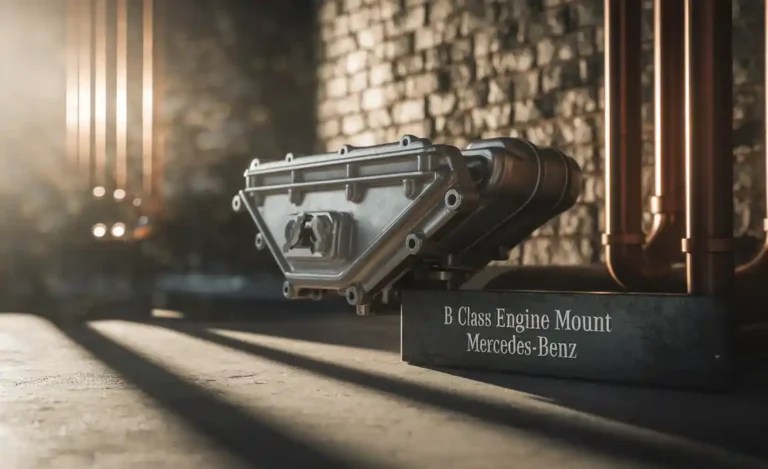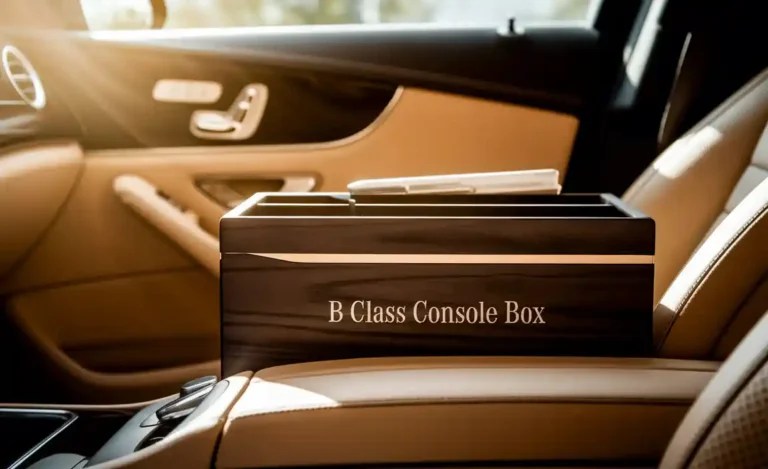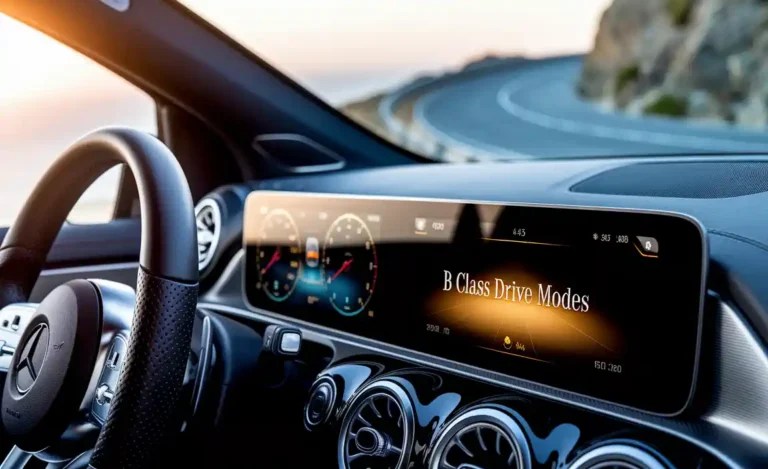B Class Insurance Claims: Your Effortless Guide
Navigating B Class insurance claims doesn’t have to be a headache. This guide breaks down the process into simple, manageable steps, empowering you to handle your Mercedes-Benz B-Class claim efficiently and confidently. You’ll learn what to expect, what information to gather, and how to communicate effectively with your insurer. We’ll cover everything from initial reporting to final settlement, ensuring you understand each stage.

Understanding B Class Insurance Claims: What You Need to Know
As a Mercedes-Benz owner, your B-Class represents a blend of comfort, versatility, and sophisticated engineering. Like any vehicle, it may face situations requiring an insurance claim, whether it’s a fender bender, a more significant accident, or even damage from other causes like theft or vandalism. Understanding the claims process for your specific vehicle, referred to here as “B Class insurance claims,” is crucial for a smooth experience.
Many vehicle owners find the insurance claims process daunting. It can feel like a maze of paperwork, unfamiliar terms, and potentially frustrating interactions. However, with a clear understanding of the steps involved and the right preparation, you can navigate these waters with far less stress. This guide is designed to demystify the world of B Class insurance claims, providing you with actionable insights and a straightforward roadmap.
Our goal is to equip you with the knowledge to feel prepared and in control. We’ll walk you through exactly what to do, what documents to have ready, and how to speak with your insurance adjuster. By the end of this guide, you’ll have a clear picture of how to manage your Mercedes-Benz B-Class insurance claims efficiently and effectively, ensuring the best possible outcome.
Why Your B Class Model Matters in an Insurance Claim
While the core principles of insurance claims apply broadly, the specific model of your Mercedes-Benz, such as the B-Class, can subtly influence certain aspects of the process. Insurance companies categorize vehicles based on various factors, including repair costs, parts availability, and the car’s overall value. Your B-Class, being a premium compact vehicle, often has specific parts and repair procedures that an adjuster will need to consider.

Understanding that your B-Class is a quality vehicle with specialized components is key. This means repair estimates might reflect the use of genuine Mercedes-Benz parts and labor from qualified technicians. Insurance adjusters are trained to account for these nuances. Knowing this upfront can help you prepare for discussions about repair estimates and potential timelines. It’s also helpful to remember that a comprehensive policy typically covers a wide range of damages, providing peace of mind when the unexpected happens.
The Essential Steps to Filing a B Class Insurance Claim
When you need to file a B Class insurance claim, following a structured approach is paramount. This ensures you don’t miss crucial steps and that you provide your insurance provider with all the necessary information promptly. Here’s a breakdown of the essential steps:
- Ensure Safety and Document the Scene Immediately: If the claim involves an accident, your first priority is the safety of everyone involved. Move vehicles to a safe location if possible. If not, use hazard lights and flares. Then, document the scene thoroughly. Take photos and videos of the damage to all vehicles, road conditions, any traffic signals or signs, and the surrounding area. If there are other parties involved, exchange contact and insurance information. If there are witnesses, get their contact details as well.
- Notify Your Insurance Company Promptly: Contact your insurance provider as soon as possible after the incident. Most policies require prompt notification. You can usually do this by phone, through their mobile app, or via their website. Have your policy number and all details of the incident ready. Be prepared to describe what happened, where it happened, and any injuries sustained.
- Provide Detailed Information About the Incident: When you speak with the insurance adjuster, be as clear and detailed as possible. Describe the sequence of events that led to the damage. Honesty and accuracy are critical. If you’re unsure about any detail, it’s better to say so than to guess.
- Assess the Damage and Obtain Repair Estimates: Your insurance company will likely assign an adjuster to assess the damage to your B-Class. They will either inspect the vehicle themselves or ask you to take it to an approved repair shop. It’s often beneficial to get at least two estimates from reputable repair facilities, especially if you have a preferred mechanic. Ensure the estimates detail parts, labor, and any associated costs.
- Review the Repair Estimates and Work with Your Insurer: Once you have estimates, compare them. Discuss any discrepancies with your adjuster. If you are using a Mercedes-Benz certified repair facility, ensure the estimate reflects the use of genuine Mercedes-Benz parts and the required labor for your specific B-Class model.
- Authorize Repairs: After agreeing on the repair scope and cost with your insurance company, you can authorize the work to begin. Your insurer will typically pay the repair shop directly, or for smaller claims, they may issue you a check, and you will then pay the shop. Understand your policy’s deductible and how it applies.
- Understand Your Settlement: The adjuster will determine the settlement amount based on their assessment and your policy coverage. This might be for repairs, or if the vehicle is totaled, it will be based on its actual cash value (ACV). Review the settlement offer carefully before accepting.
Key Information to Gather for Your B Class Insurance Claim
To expedite your B Class insurance claim and ensure it proceeds smoothly, having the right information readily available is essential. Gathering these details upfront can significantly reduce delays and potential frustrations.

Documents and Information to Collect:
- Your Policy Number: This is crucial for identification and accessing your coverage details.
- Date, Time, and Location of the Incident: Be precise with these details.
- Description of the Incident: A clear, chronological account of what happened.
- Police Report Number (If Applicable): If law enforcement responded to the scene, obtain the report number and a copy of the report if possible.
- Contact Information of Other Parties Involved: Names, addresses, phone numbers, and insurance details of any other drivers or property owners affected.
- Witness Information: Names and contact details of any individuals who witnessed the event.
- Vehicle Information: Your Mercedes-Benz B-Class VIN (Vehicle Identification Number), make, model, year, and license plate number.
- Photos/Videos of the Damage: Visual evidence is invaluable. Ensure photos capture the extent and nature of the damage from multiple angles.
- Repair Estimates: As mentioned, having one or more detailed estimates from reputable repair shops.
Navigating the B Class Insurance Claims Adjuster
The insurance adjuster plays a pivotal role in your B Class insurance claim. They are the professional assigned by your insurance company to investigate the incident, assess the damage, and determine the payout based on your policy’s terms. Building a cooperative relationship with your adjuster can make the process much smoother.
When you first interact with an adjuster, be prepared to provide a factual account of the incident. Avoid speculation or admitting fault unnecessarily. It’s important to understand that their role is to represent the insurance company, so while they should be fair, they are also tasked with managing the company’s costs. Ensure you understand what they are assessing and why.
Ask questions if anything is unclear. They should be able to explain the assessment process, how they arrive at repair cost estimates, and what your policy covers. Remember to take notes during your conversations, including the adjuster’s name, contact information, and the date and time of your discussions. This documentation is vital for your records.
Understanding Repair Estimates and Your B-Class
Repair estimates for a Mercedes-Benz B-Class can sometimes differ from those for more common makes due to the specialized nature of the vehicle. This means using genuine Mercedes-Benz parts and employing technicians skilled in working with German luxury vehicles. Insurance companies understand this, but it’s your responsibility to ensure the estimate accurately reflects the necessary repairs.

A typical repair estimate will break down costs into:
- Parts: This section details the cost of each component needed for the repair. For your B-Class, ensure this specifies “Genuine Mercedes-Benz Parts” or equivalent.
- Labor: This covers the cost of the technician’s time. The hourly rate and the estimated hours for each repair task are listed here. Mercedes-Benz certified shops may have different labor rates than independent garages.
- Paint and Materials: Costs associated with painting, primers, and other necessary materials.
- Ancillary Costs: This can include items like shop supplies, disposal fees, or diagnostic charges.
It’s beneficial to compare estimates not just on the total price but also on what’s included. If one estimate is significantly lower, understand why. It might be using aftermarket parts or less experienced labor, which could impact the quality and longevity of the repair. For a deeper understanding of automotive repair estimates, resources like those from the Federal Highway Administration (FHWA) often discuss standards and best practices in the automotive repair industry, which can inform your understanding of fair estimates.
B Class Insurance Claims: When Your Mercedes-Benz is Declared a Total Loss
In unfortunate circumstances, an accident or damage might be so severe that the cost to repair your B-Class exceeds its actual cash value (ACV). In such cases, the vehicle is declared a “total loss.” This is a critical point in the claims process, and understanding how it works is essential.
The ACV of your vehicle is its market value just before the incident occurred. This value is determined by the insurance company using several factors, including the make, model, year, mileage, condition, and recent sales data for comparable vehicles in your local market. If you disagree with the offered ACV, you have the right to present evidence supporting a higher valuation, such as advertisements for similar vehicles for sale or documented maintenance records that indicate premium condition.
Once a total loss is declared and you accept the settlement offer, the insurance company will typically take possession of your B-Class. The settlement amount, minus your deductible, is then paid to you. If you have a loan on the vehicle, the payout will first go to the lender to cover the outstanding balance. Any remaining funds are then paid to you.
Tips for a Smooth B Class Insurance Claims Experience
Filing an insurance claim can be stressful, but a few proactive tips can help ensure your B Class insurance claims process is as smooth and efficient as possible:
- Be Prepared: Keep your insurance policy documents readily accessible, along with your vehicle’s maintenance records.
- Document Everything: From the accident scene to every conversation with your insurer, keep detailed notes and copies of all correspondence.
- Be Honest and Accurate: Provide truthful information to your insurance adjuster. Misrepresenting facts can lead to claim denial.
- Ask Questions: Don’t hesitate to ask for clarification on any part of the process, policy terms, or estimates.
- Know Your Policy: Understand your coverage limits, deductibles, and any specific exclusions. You can often find this information on your insurer’s website or by calling them directly. For insights into common policy terms, the National Association of Insurance Commissioners (NAIC) provides excellent consumer guides on auto insurance.
- Be Patient, But Persistent: While it’s important to follow up, allow reasonable time for the insurer to process your claim. Follow up regularly to check on the status.
- Consider Your Repair Options: You generally have the right to choose your repair shop. If you have a trusted Mercedes-Benz specialist, discuss this with your insurer.
Common Coverages Relevant to B Class Insurance Claims
Your Mercedes-Benz B-Class insurance policy likely includes several types of coverage that are relevant when filing a claim. Understanding what each covers can help you navigate the process better.
| Coverage Type | What it Covers | Relevance to B Class Claims |
|---|---|---|
| Collision Coverage | Damage to your vehicle resulting from a collision with another object or from overturning your vehicle. | Covers damage from accidents where you hit another car, a pole, a tree, etc. |
| Comprehensive Coverage | Damage to your vehicle not caused by a collision. This includes theft, vandalism, fire, hail, falling objects, and hitting an animal. | Covers damage from incidents like a broken window due to a break-in, storm damage, or if your B-Class is stolen. |
| Liability Coverage | Covers damage you cause to other people’s property (Property Damage Liability) or injuries to other people (Bodily Injury Liability) in an at-fault accident. | Does not directly cover damage to your B-Class but is essential if you are found responsible for an accident. |
| Uninsured/Underinsured Motorist (UM/UIM) | Covers your expenses if you’re hit by a driver with no insurance or insufficient insurance to cover your damages. | Protects you if the at-fault driver for damage to your B-Class cannot pay for it. |
| Medical Payments (MedPay) / Personal Injury Protection (PIP) | Covers medical expenses for you and your passengers, regardless of who is at fault. PIP can also cover lost wages and other related expenses. | Covers medical needs arising from an accident involving your B-Class, separate from other drivers’ liability. |
Make sure to review your specific policy declaration page to confirm the types and limits of coverage you have purchased. This document is your contract with the insurance company.
What to Do If Your B Class Insurance Claim is Denied or Underpaid
It can be disheartening if your B Class insurance claim is denied or if you believe the settlement offer is too low. However, you have options. The first step is to understand the reason for the denial or the basis for the low offer.
- Request a Detailed Explanation: Ask your insurance company for a written explanation detailing why the claim was denied or how the settlement amount was calculated.
- Review Your Policy and Evidence: Carefully reread your policy documents to ensure the insurer is interpreting the terms correctly. Gather all your documentation, photos, witness statements, and repair estimates.
- Present Your Case: If you have evidence that contradicts the insurer’s decision, present it clearly and concisely. This might involve sharing a more detailed repair estimate from a reputable shop or evidence of your car’s market value.
- Consider an Independent Appraisal: For disputes over the vehicle’s value in a total loss scenario, you might hire an independent appraiser. Many policies have an appraisal clause that allows for this.
- Contact Your State’s Department of Insurance: If you cannot reach a resolution with your insurer, you can file a complaint with your state’s regulatory body. They can investigate your case and mediate disputes. For example, you can find your state’s insurance department through the NAIC’s website.
- Seek Legal Counsel: In complex or high-value disputes, consulting with an attorney specializing in insurance law might be necessary.
Frequently Asked Questions (FAQs) About B Class Insurance Claims
Q1: How long does a B Class insurance claim typically take?
The timeline can vary widely depending on the complexity of the claim, the extent of the damage, how quickly you report it, and your insurance company’s efficiency. Minor collision claims might be resolved in a few weeks, while more complex cases, especially total losses or those involving multiple parties, could take several months.
Q2: Can I choose any repair shop for my Mercedes-Benz B-Class?
Generally, yes. You have the right to choose where your vehicle is repaired. However, your insurance company may steer you toward “preferred” or “network” shops, which can sometimes streamline the process. If you choose a shop not in their network, you might have to pay upfront and seek reimbursement, or the insurer may pay the non-network shop directly, but the approval process might be different. It’s best to discuss this with your adjuster.
Q3: What is a deductible, and how does it affect my B Class insurance claim?
A deductible is the amount you agree to pay out-of-pocket towards a covered loss before your insurance coverage begins. For example, if you have a $500 deductible and your covered repairs cost $3,000, you pay $500, and your insurance company pays the remaining $2,500. The deductible amount is typically applied per claim incident.
Q4: Do I need a police report for my B Class insurance claim?
While not always mandatory, a police report is highly recommended, especially for accidents involving significant damage, injuries, or multiple vehicles. The report creates an official record of the incident, which can be very helpful for your insurance company in assessing fault and processing your claim.






